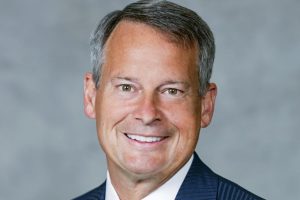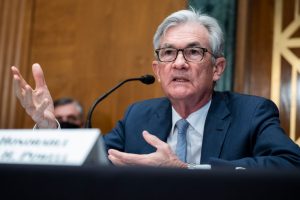Taking the skill empowerment for the people with disability to new heights by initiating International conversations, a session on ‘Skill Development-Bridging The Gap’ was hosted at the virtually-held National Ability Summit (NAS). The two-day event that started on Wednesday is dedicated to create awareness about disabilities of all kinds and is organised by Varija Life.
The session witnessed participation by Meg O’Connell, PHR, CEO & Founder Global Disability Inclusion, USA, Rich Donovan, CEO, The Return on Disability Group, Author of Unleash Different, Canada, Ravindra Singh, Chief Executive Officer, Skill Council for Persons with Disability, India and Suhas Lalinakere Yathiraj, IAS, District Magistrate, Noida, (India)
Also Read: An ‘invisible illness’: Professionals discuss mental health issues at National Ability Summit
The discussion kicked off with the key question to all the panelists who weighed on how skill development can bridge the gap for persons with disabilities in the long run.
Addressing the development at hand, IAS Suhas Lalinakere beautifully articulated that skills are nothing but a set of value and when these skills are imbibed in individuals with disabilities, it not only adds value to them, which in turn facilitate their overall empowerment but to the society as a whole.
Adding on to that bit, Rich weighed on how mindset and expectations towards to people with disabilities need to change to initiate their development.
Rich, who described people with disabilities as a strong force in the global economy in his book ‘Unleash Different’ elaborated on the economical benefits of skill development.
“In addition to the value they add to their respective work, people with disabilities bring about innovation, which is the need of the hour.”
He also added, “There is a huge untapped market of persons with disabilities and organizations need to grow sensitive about it. “
Next on line was Ravindra Singh, who added an interesting point to the conversation by nothing what wrong with the understanding of skill development as a concept and how it is perceived in a society like ours.
“When one looks at skill development, on tends to focus on core jobs that a person can get or can use as a way of employment.” he said.
Singh further added, “We need to look a step before and a step beyond, learning mechanisms need to be start getting integrated from the beginning, so that one can pick up the skill at the school level and can polish it further in a hard practicing environment.”
Meg on the other hand, had shifted the focus from professional achievement to what impact does adding skills has at the personal level on the individuals with disability.
“I believe it helps them build self confidence and realize their potential and not only them but to the companies who now understand that all of them bring something different to the table.”
Meg also weighed on what we call as ‘under-representation’ of young individuals with disabilities and is elevating to become a global concern.
“There are a lot of factors affecting a young disable person’s ability to join the work force, starting from their parents and family, who are nervous to send their specially able children to work to refraining them from taking responsibilities.”
The panelists altogether recognized tradition and cultural skill set training and changes in the practice of ‘corporate culture’ as we know it, to be the key area of emphasis to bring about a change to the lives of persons with disability in terms of skill developement.





